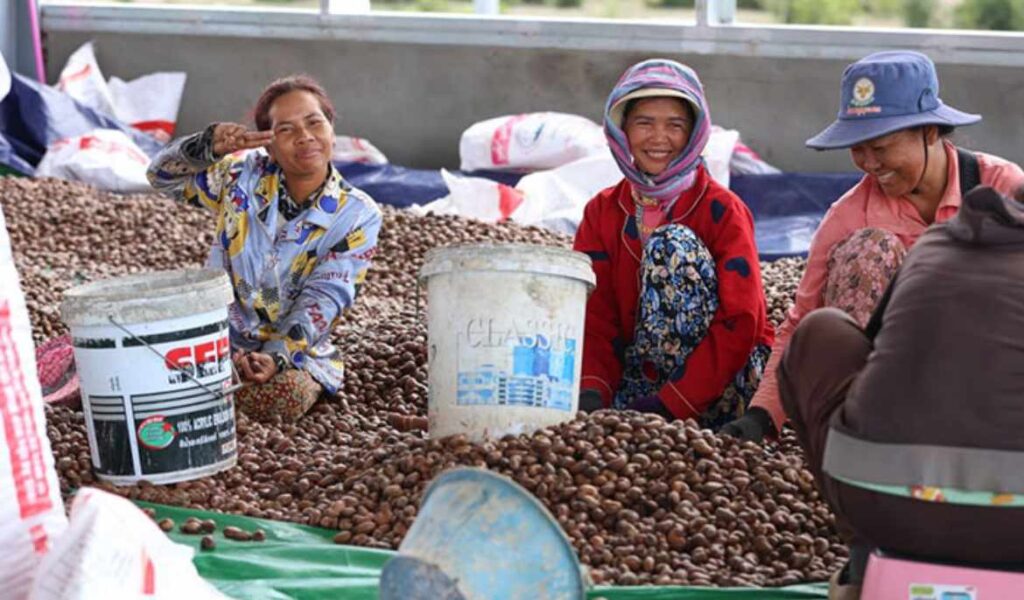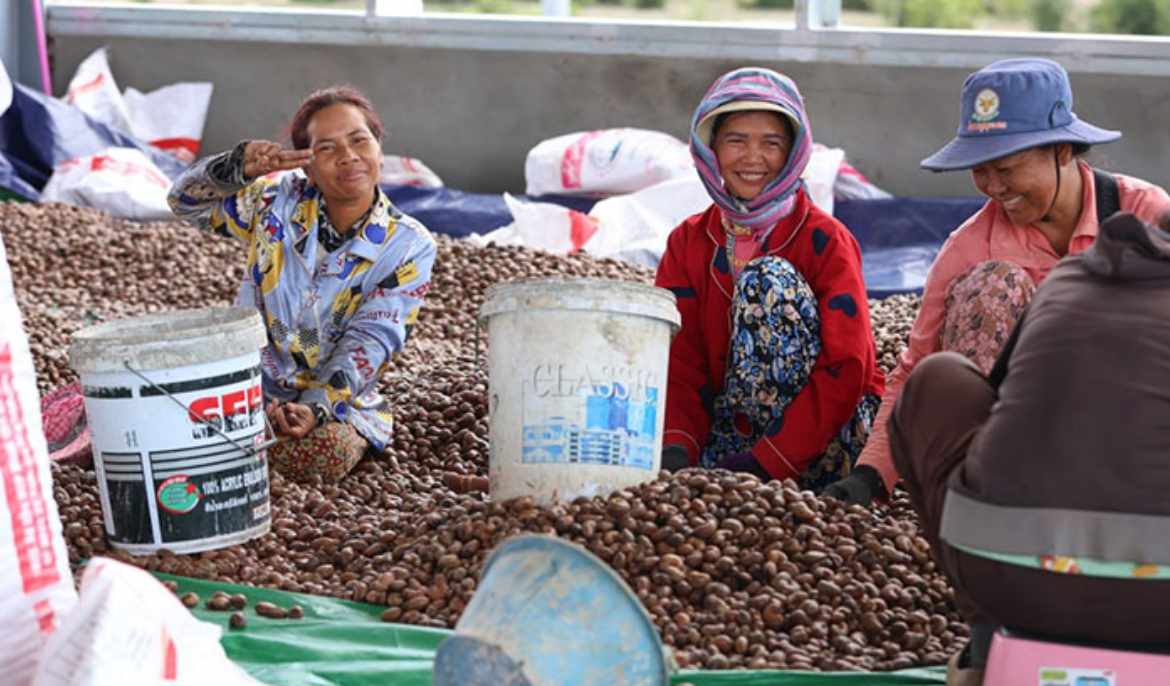Australia and Japan have collaborated to help strengthen Cambodia’s cashew sector by increasing processing capacity, aiming to produce a more delicious and high-quality product for export to the global market.
The Australian Embassy in Cambodia wrote on its social media earlier this week that Australia and Japan are working together to strengthen Cambodia’s cashew sector through complementary support that can increase processing capacity and get more delicious, high quality Cambodian cashews to the global market.
“Only about 5 percent of the 840,000 tonnes of cashews grown in Cambodia last year was processed in country. If more of this yield can be processed in Cambodia, the country can capture more value and generate more jobs and wealth,” it read.
The same source added that with support from both governments, Kampong Thom-based cashew processing company MIRARTH Agri Tech is helping to advance in-country processing, showcase Cambodia’s cashews to global markets, and ensure smallholder farmers who grow these cashews benefit from more stable, fair prices.
Japanese support has helped MIRARTH improve supply chains and undertake feasibility studies for cashew processing and minimising waste.
Australia, on the other hand, has helped MIRARTH enhance its export readiness, including through coaching, business matchmaking, and participation in the 2025 World Cashew Conference – resulting in preliminary agreements with several companies.
MIRARTH plans to process 3,000 tonnes of cashew in 2025 and work towards a zero-waste approach.
“This collaborative approach between Australia and Japan reflects our shared commitment to advance high-potential sectors in Cambodia – improving productivity, employment and livelihoods whilst driving sustainable economic growth,” Australian Embassy in Cambodia emphasised.
Regarding this collaboration, the Cambodian Cashew Nut Association (CAC) has expressed its full support, believing that Cambodia’s cashew sector is poised to enter the international market more quickly.
Suy Kokthean, Vice President of the Cambodian Cashew Nut Association (CAC), told Khmer Times that, “With this kind of collaboration from advanced countries, I believe the cashew sector will grow rapidly — making significant progress in processing, expanding into international markets, and building a strong reputation on the global stage.”
According to a report from CAC, Cambodia produced 850,000 tonnes of cashew nuts in 2022, representing a 26.8 per cent increase year-over-year, and exported 815,000 tonnes, up 31 per cent.
At the first Congress of the National Assembly and Senate in early June, Prime Minister Hun Manet highlighted the cashew sector support project. He announced that the Royal Government is preparing to launch a pilot project for the cashew industry in Kampong Thom province, which will be developed as a new type of industrial park.
He added that this industrial park will differ from previous models, such as privately owned industrial zones or special economic zones. Instead, it will be state-owned, with the government providing the land and the private sector contributing investment.
“This initiative is about ensuring large-scale exports — something that can only be achieved with a coordinated production strategy. If we export in small quantities, we won’t succeed. If small companies compete individually, we won’t reach the necessary scale. Production costs remain high, markets are limited, and we cannot compete effectively. Therefore, we must consolidate, build capacity, and collaborate with strong partners,” Mr Hun Manet explained.



